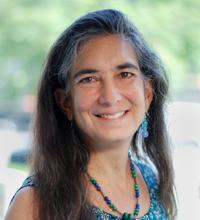Webinars
 |
June 15, 2016 - WASHplus Clean Cooking: What We Did, Why It Matters. Link to webinar. Link to slides. |
 |
March 30, 2016 - WASH in Schools Webinar. Link to slides. |
 |
February 18, 2016 - Washing Away Diseases Two Hands at a Time. Featuring experts from WaterAid, Sightsavers, the FHI 360-led USAID/WASHplus project, and USAID, this webinar is an excellent opportunity for those working in both WASH and NTDs to learn about the global landscape of WASH/NTD strategy and glean practical insights from projects that are operating in this context. Link to webinar. |
 |
April 7, 2015 - Handwashing and Global Food Hygiene: A World Health Day Webinar. Food hygiene is a particularly relevant topic for those of us working in handwashing. The Global Public-Private Partnership for Handwashing (PPPHW) hosted this webinar to celebrate the 2015 World Health Day theme: food safety. Watch this webinar to:
|
 |
January 8, 2015 - Multisectoral Approaches to Improve Child Growth through WASH, Nutrition and Early Childhood Development. WASHplus collaborated with the CORE Group Nutrition and Social and Behavior Change working groups to host a one-hour webinar on multi-sectoral approaches to improve child growth and development; with a focus on improving the community knowledge of practice and sharing efforts for early childhood development, nutrition and WASH integration. During the webinar, WASHplus’Renuka Bery discussed the evidence for integrating the three sectors – and the evolution of the Clean, Fed & Nurtured community of practice. Link to webinar. | Link to slides. |
|
|
December 4, 2014 - David Neal: Handwashing and the Science of Habit. Link to webinar and slides. | Link to slides.
|
 |
July 23, 2014 - WSUP & WASHplus - The Power of Creative Thinking: Working Within and Around Challenging Institutional Frameworks. Presenters for this webinar: Baghi Baghirathan, Programme Director, WSUP; Orlando Hernandez, Monitoring & Evaluation Specialist, WASHplus. Link to webinar and slides. |
 |
June 25, 2014 - WASH, Nutrition and Early Childhood Development: New Evidence in ECD and Findings from the Field. Presenters for this June 25, 2014 webinar: Jenny Orgle, Program Director for the Nutrition at the Center Program at CARE USA, talks about "Addressing Environmental Enteropathy in CARE's Nutrition at the Center Program."Maureen Black, Ph.D., Professor, Department of Pediatrics, University of Maryland School of Medicine, discusses "New Evidence Linking Nutrition and Early Child Development" and its connection to WASH. Moderated by Helen Petach, USAID, Bureau for Global Health, Office of Health Infectious Diseases and Nutrition. Link to webinar and slides. |
 |
May 7, 2014 - TRAction/WASHplus Webinar - Behavior change approaches on the use of clean stoves and fuels. This webinar (co-hosted by the WASHplus project) highlights lessons learnt from the three TRAaction projects including which behavior change approaches were effective and which ones showed no impact, how these lessons can be used to enhance the uptake of clean stoves and consideration of next steps to broaden and further our understanding of the potential of behavior change in the clean cooking sector. Link to webinar. |
 |
Nov 21, 2013 - USAID-Rotary International H20 Allliance Webinar on the WASH Sustainability Index Tool. Developed with support from the USAID-Rotary International H2O Collaboration, the WASH Sustainability Index Tool can be used to assess the likely sustainability of WASH interventions using a range of qualitative and quantitative indicators. Click here to download the the WASH Sustainability Index Tool and the accompanying resource files. More information on the WASH Sustainability Index Tool is available here. |
 |
Sept 11, 2013 - USAID Webinar on Environmental Enteropathy (EE) and WASH. This webinar discusses the latest EE findings, including how WASH can be integrated into USAID nutrition and other programs. The webinar was sponsored by the USAID Community of Practice: The Nexus between WASH, Nutrition and Feed the Future with support from the USAID-funded TOPS program and WASHplus project. Link to webinar and presentations. |
June 27, 2013 - Behavior Change in WASH Programs. Watch the webcast of USAID’s discussion on “Behavior Change in WASH Programs: From Barriers and Access to Application and Use.” Featuring Chris Holmes, Merri Weinger and Jenny Datoo, USAID; Ron Clemmer, World Vision; and Orlando Hernandez, WASHplus/FHI 360.
July 17, 2012 - PPPHW Think Tank Overview Webinar. The Global Public-Private Partnership for Handwashing (PPPHW) and its partners hosted 30 experts working on behavior change for a Handwashing Think Tank from June 20-21, 2012, in New York City. Participants came together to take stock of the best, identify the gaps, and articulate the way for forward for handwashing behavior change. The group came to consensus on issues like critical times for handwashing. On July 17, the PPPHW hosted a webinar to share a summary of the Think Tank meeting and next steps for those who were unable to attend. View the webinar or PowerPoint below. See the Handwashing Behavior Change Think Tank Summary - Read the presentation (pdf)
WASH & HIV/AIDS Webinar. January 18 & 25, 2012. (download/view)
Lessons Learned on Working at Scale in Ethiopia and Madagascar. June 23, 2011 - (view webinar recording)

